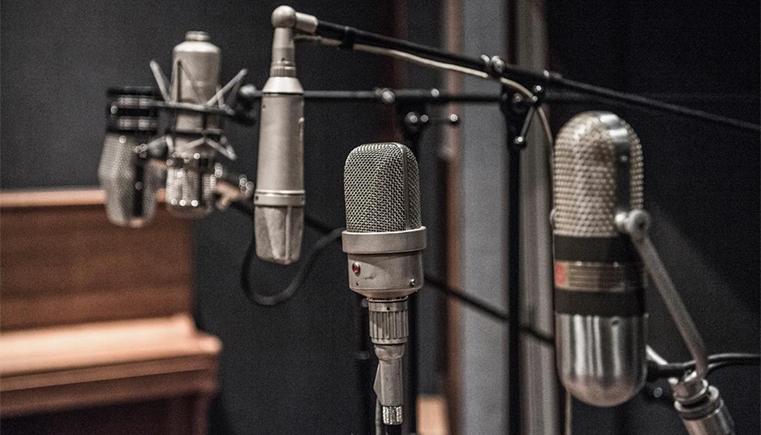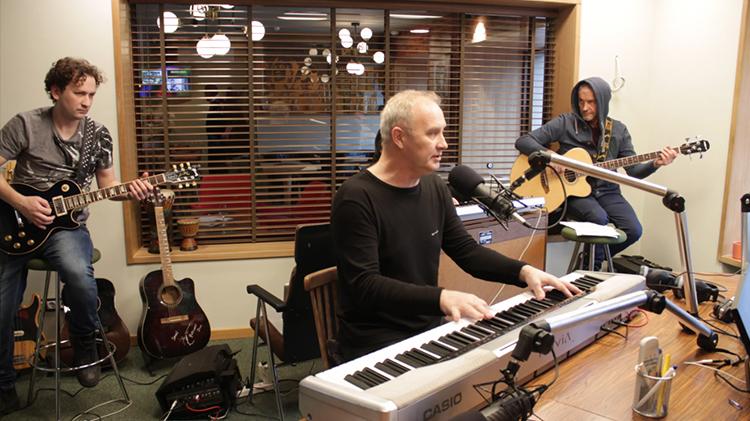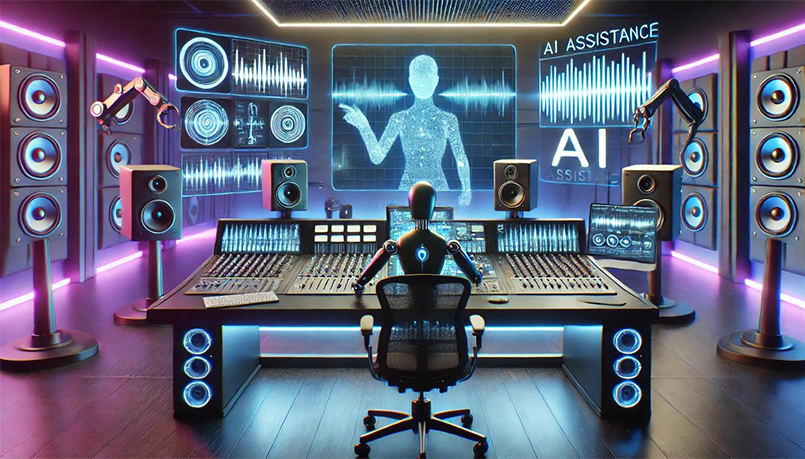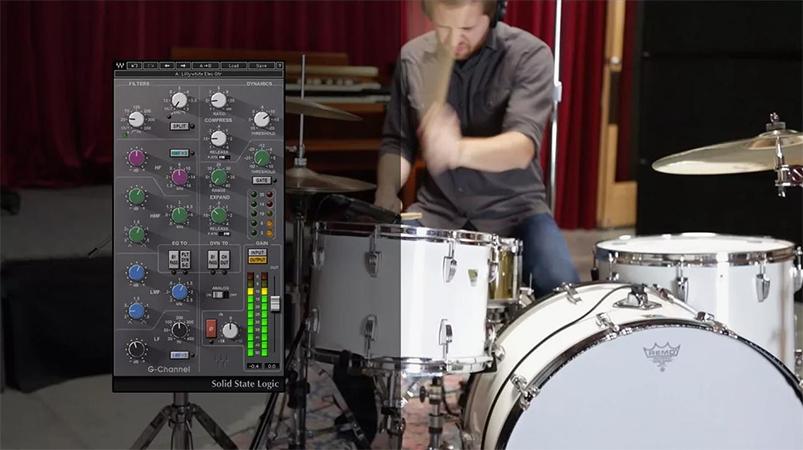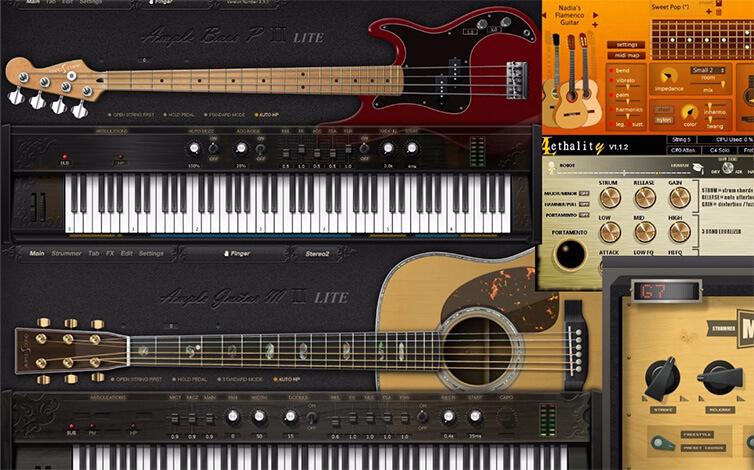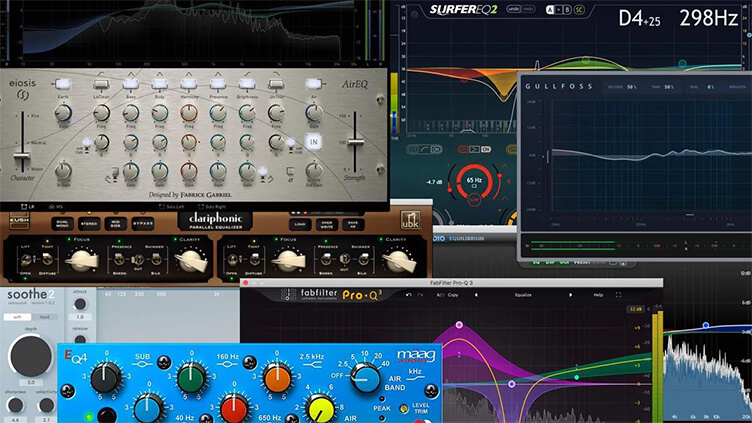Music management

How to become a music manager?
You can’t just jump into the music manager profession “off the street” – you need connections in the music industry, a deep understanding of music, and knowledge of audience preferences. If you don’t have any experience, start by working with up-and-coming artists: many of them hire their friends, acquaintances, or people recommended by other musicians as managers. Another way is to learn from professionals to build connections, gain the necessary knowledge, and get to know artists, which can later lead to a full-time job in the industry.
How is an artist’s team structured?
The artist’s personal manager is a key figure who interacts with the musician himself and coordinates the work of the entire team. Regardless of whether he performs the tasks himself or delegates them to others, his main role is to be the link between the artist and all other team members.
The producer is responsible for the musical material. Depending on the scale of the artist, there may be several producers, each of whom is engaged in finalizing the tracks, arrangements, placement of songs in the album and other aspects. In Russia, the producer is often a sound engineer who mixes the material.
The marketing manager is engaged in all digital platforms: sending promotional materials, working with the media, organizing activities, maintaining social networks and interacting with the audience. His task is to promote music and increase the popularity of the artist.
The targetologist is responsible for advertising on social networks. He defines the target audience, analyzes the effectiveness of advertising campaigns and decides how best to promote the music.
A concert director organizes shows, develops tour strategies, and ensures that concerts are profitable.
A lawyer is an indispensable member of the team. He checks contracts with labels, helps draw up documents for concerts, understands copyright issues, and advises on legal issues, which is especially important for preventing possible problems.
An accountant is responsible for taxes and financial reporting.
Why does a musician need management?
Artist management is a complex process involving different specialists depending on their functions and roles. As the artist’s needs grow, new people are added to his team who are able to meet these needs. If a musician is just starting his career, his personal manager can perform all the roles himself, or the artist is engaged in his own management.
The manager acts as an intermediary between the artist and the outside world, managing his musical, image and concert resources.
The musical resource includes the creation of songs, recording and production of phonograms. The manager works with this resource at all stages – from the idea to the finished master copy of the tracks.
The image resource concerns the fan base, the public image of the artist and interest in him from the media. The manager develops this resource, contributing to the growth of the musician’s popularity.
The concert resource is associated with performances at various events, from solo concerts to promotional events.
Do all artists have managers?
Not all. Aspiring artists often do everything on their own, since their main task is to write music and perform. A manager is needed to turn music into a product and bring it to market. This is the person who connects the artist with the audience and the world of the music business. Musicians usually do not have enough time to do all these tasks.
What qualities does a manager need?
An artist manager must be a generalist, able to cope with different tasks. He must be able to check contracts, give feedback on sound, and interact with both brands and fans. Although he does not have to be a professional lawyer, it is important to understand legal nuances and supervise the work of specialists.
Independence is a key quality of a manager. A musician often does not know what exactly his manager should do, so lack of initiative and passivity are unacceptable here. Also, a manager needs to be well versed in the music industry, understand streaming issues, copyright, promo and other aspects of the work. If he delegates tasks to other specialists, he must understand them down to the smallest detail.
One manager or a team?
Most beginning artists have one manager who takes on all the responsibilities. As the musician’s popularity grows, he or she may have a team where each member has their own role. For example, successful performers who already have a large audience often have a separate tour manager. In the case of artists signed to a major label, a hybrid management option is usually used, where the label and a personal manager work together.
Why is it important to work out the artist’s positioning?
Clear artist positioning is the basis of their success. The artist must understand what audience they are addressing and convey a clear message. Positioning must match their character: you can’t try to turn a modest person into a daring rock star – this will look unnatural.
The same applies to releases. The manager must assess the mood of the upcoming single or album, understand what the artist wants to convey to listeners, and check how much the visual component matches the music. In the context of a huge amount of new music, it is important to make the product competitive. The manager must find ways to make the artist stand out from the crowd – this could be unusual positioning, creative solutions on social networks or a bright image that will attract attention. Well-developed positioning helps the musician find his niche and retain the audience’s attention, despite the high competition in the music industry.
How do you know if you can make money on an artist’s music?
It’s difficult. Of course, there are managers who can tell from one track whether an artist can become commercially successful, but this requires a lot of experience, as well as a good understanding of the market and audience. In most cases, understanding comes during the process of work. During this period, she advises looking at the dynamics of audience growth, the fees for performances that the artist will be offered, the number of tickets sold for concerts and the interest of advertisers. If the audience is not growing, advertisers are reluctant, and tickets are not selling well, you need to either revise the promotion strategy or part ways with the artist.
How a manager should work with a music resource
A lot of artists work with a music resource independently and do not want a manager to participate in this process. Sometimes the manager’s role is only to book a studio or buy a beat for a song, but there are situations when the manager gets more actively involved in the creative process: for example, he or she is fully engaged in organizing the artist’s time, controls deadlines, creates comfortable conditions for them, and looks for a balance between encouragement and some reasonable criticism. When working with the artist’s musical resource, it is important for the manager to understand how independent their client is and what kind of help they need. Personal work with the artist sometimes resembles the work of a psychologist: writing music is the number one process in which it is important to maintain work ethics. When working on the material, the artist is in the most vulnerable state. You must inspire the musician and help them. It is very important to create comfort for the artist. Remember that you are always on their side: even if they are completely wrong, conversations should start with support. At the same time, it is important to prevent your own burnout: the manager should introduce a work schedule and rules of interaction.
Ok, so how much can you earn?
If an artist has one manager, then, as a rule, he works for a percentage of the musician’s fee – usually 10-20%. If the performer has a team, then the earning scheme can be more complicated. In some cases, the artist’s fees, no matter how large they are, are divided among the musician’s entire team. In other cases, some employees receive a fixed rate, and some receive a percentage of the income. For example, a tour manager will receive a portion of the income from concerts, and a press agent (that is, a person responsible for communicating with the media and advertisers) will receive a salary.
Okay, where to start working?
One of the first tasks of a manager is to distribute the artist’s music on as many platforms as possible: social networks, media, and, of course, streaming services. They can promote the artist’s music through their recommendation system, include it in leading playlists, which will help the musician get a new audience. Agreeing on cooperation with streaming partners and explaining to them why it is your artist that needs to be promoted is precisely the manager’s job.
How to organize work on promo releases
Preparation for the promo of an upcoming release should begin long before the release date. This gives the media time to familiarize themselves with the material, and the manager – the opportunity to establish contact with music services and prepare all the necessary information for various platforms. Each distributor has its own requirements for promo applications, and it is important to familiarize yourself with them in advance to avoid delays. In the process of promotional campaigns, such tools as targeted advertising and advertising seeding are used, which help to reach the target audience.
Although the influence of traditional media on listeners is no longer as great as before, you should not ignore the press, blogs, TV channels and radio. For example, radio stations can significantly increase the number of Shazams, especially for tracks in the dance or pop music genres. Each resource can offer its own unique advantages, and it is important to use them to the maximum. Moreover, the media can create an image of the artist, which is difficult for him to form on his own.
The artist should have a content plan that covers all platforms – from Instagram and TikTok to YouTube. It is also important to conduct fan activities on social networks, such as cover contests, to maintain the interest of the audience. Without constant interaction with the fan base, it can gradually shrink. The more famous the artist, the more opportunities for creativity. Although world stars can afford large-scale promotions and special projects, aspiring musicians should also develop in this direction. Even without great fame, you can participate in niche special projects, record thematic compilations, create live versions or remixes with interesting DJs.
How to organize concerts?
It is important for a manager of a budding artist to master the skills of organizing concerts independently. This process includes four main stages:
- Defining the purpose and audience of the event. Understanding who your potential viewer is will help you better prepare and choose the right promotion strategies;
- Choosing a venue. The venue should match the scale of the event and the expectations of the audience;
- Calculating the estimate and determining the ticket price. This stage includes calculating all costs and setting a ticket price that will be beneficial for both the artist and the audience;
- Conducting a promotional campaign. This includes announcements on social networks, news in the media, printing posters and flyers.
What to look for when organizing a concert?
In the era of streaming, the concert industry has changed a lot. Music is easily accessible and promotion is almost instantaneous, but this does not guarantee success at concerts. For example, a track can go viral, but this does not mean that the artist will be able to gather a large audience at a live performance. On the contrary, a rock band that is not very popular in streaming can attract large halls, while the authors of dance and rap hits with millions of plays can only gather a small audience at live shows.
Advertising for concerts is based on the same principles as advertising for releases. It is important for the manager to find a reliable contractor who will effectively set up advertising campaigns and ensure ticket sales. Concerts also provide an excellent opportunity to sell merch, and the manager needs to organize its delivery and sale on site in advance. When planning a tour, a manager should take into account all the details: think through the logistics, create a tour schedule, carefully write out household and technical riders, maintaining a balance between the artist’s comfort and costs, and also study ticket systems and establish a ticket sales process.
Concerts and distribution of records – is that all?
Of course not. The work of a music manager is not limited to organizing concerts and distributing records. An important part of the activity is cooperation with brands, participation in sponsorship projects and collaborations. Today, brands are actively looking for artists for cooperation, offering them to become ambassadors, participate in festivals or special projects on various platforms. Another way to earn money is licensing music, which includes selling tracks for use in films, on television or in advertising. In this case, the manager must be able to work effectively with music publishers and lawyers.
How to communicate with artists?
Communication with artists should be based on the principles of professionalism. It is important to clearly separate personal and work relationships, as well as to define responsibilities in detail in order to avoid possible conflicts. Artists are people with high emotional sensitivity, and working with them can be difficult. As many professional managers say, “a good artist is an emotion factory”, and interaction with them will inevitably be accompanied by certain difficulties. Therefore, one of the important tasks of a manager is to maintain their own emotional stability and objectivity. “Your head should always be a little cooler,” experts note. Properly built relationships with an artist will also help the manager protect their interests in the event of a breakup, both financially and reputationally.
Why should a manager understand legal issues?
First, a manager must ensure that the artist is properly legally registered. If the musician remains an individual, this can lead to many problems with contracts and taxation. Therefore, it is recommended to register the artist as a self-employed person or individual entrepreneur (IE).
Maintaining financial records and monitoring tax payments are also the manager’s responsibilities in order to avoid problems with the law. Until the artist earns significant amounts, you can postpone filing taxes, but as soon as their income begins to grow, this issue becomes a priority.
In addition, the manager needs to control the licensing of tracks. The artist who wrote the song is its author and the owner of the phonogram. To monetize a track, it is necessary to transfer the rights to its use to the label or distributor through the conclusion of an appropriate agreement. The manager must understand all the nuances of such agreements in order to protect the rights of their artist and avoid transferring the rights to the track forever or concluding unfavorable conditions.
Why it is important to spell out the terms of cooperation with the artist
One of the most common mistakes managers make is the lack of a formal contract with the artist for their work. This can lead to serious problems, because at any moment a conflict or misunderstanding regarding the terms of cooperation can arise. To avoid such situations, it is necessary to secure all agreements legally. Clearly spelled out terms in the contract will help create a solid foundation for successful cooperation and ensure clarity in the relationship.
The international standard of cooperation between a manager and an artist varies from 10 to 20% of income. For superstars, this percentage is usually around 10%, while for beginners it is 20%. It is important to consider what amount this percentage is calculated from: from gross revenue (all income of the artist) or from net profit. If the manager receives a percentage of all incoming money, it is important to understand what expenses the artist bears. In some cases, income may be minimal, and expenses significant, and then it makes sense to agree on more flexible terms. For example, a manager may receive 15% of an artist’s total income, but no more than 50% of his or her net profits, to ensure a fair distribution of income.
Why it’s important for a manager to adapt to industry changes
The roles in an artist’s team have changed significantly in recent years, and this is not something that is taught in music schools or traditional textbooks. The industry is so dynamic that everything changes every six months. Information that was relevant a few years ago may be outdated and ineffective today. It is important for a manager to constantly update their knowledge and follow the latest trends.
Technological changes have also greatly affected the process of recording music. Today, sound quality no longer depends on the cost of studio equipment. More and more artists are creating successful albums at home, which makes the manager focus on revealing the artist’s talent, and not on the recording conditions.
The process of releasing music has also changed dramatically. Distribution has become more accessible thanks to the emergence of many independent labels and aggregators. More and more niche artists are finding their listeners in a variety of genres. Labels no longer invest huge amounts of money in promoting new stars, but focus on social media analytics. In these conditions, it is better for an artist to start working independently, rather than waiting for help from labels. The age threshold for entering the industry has also changed. If earlier young artists often became stars, today even after 30-35 years old, releasing their first hits recorded with their own funds, become successful musicians.
The monetization of releases has also undergone significant changes. Today, artists receive royalties not only from sales and streaming of music, but also from accounts on social networks, videos on YouTube and other digital platforms. It is important to distribute content as much as possible on all available platforms in order to increase income and popularity.
Social networks have radically changed the mechanism of interaction between an artist and an audience. Now a musician is not an unattainable figure, but can communicate with his fans on a daily basis, receiving feedback from them and telling about himself. However, this also creates new challenges, as musicians are beginning to be perceived as ordinary people, which can complicate work with a fan base.
Even accounting and document management are changing in the digital age. More and more online services are appearing that simplify tax calculations and financial reporting. However, legislation does not always keep up with these changes, and one often has to work with a large number of documents.
How long does it take to learn?
Learning in the music industry is an ongoing process. The industry is constantly changing, with new distribution platforms, venues, and festivals emerging. It’s important to be prepared to continually learn and adapt, just like in any other profession.


